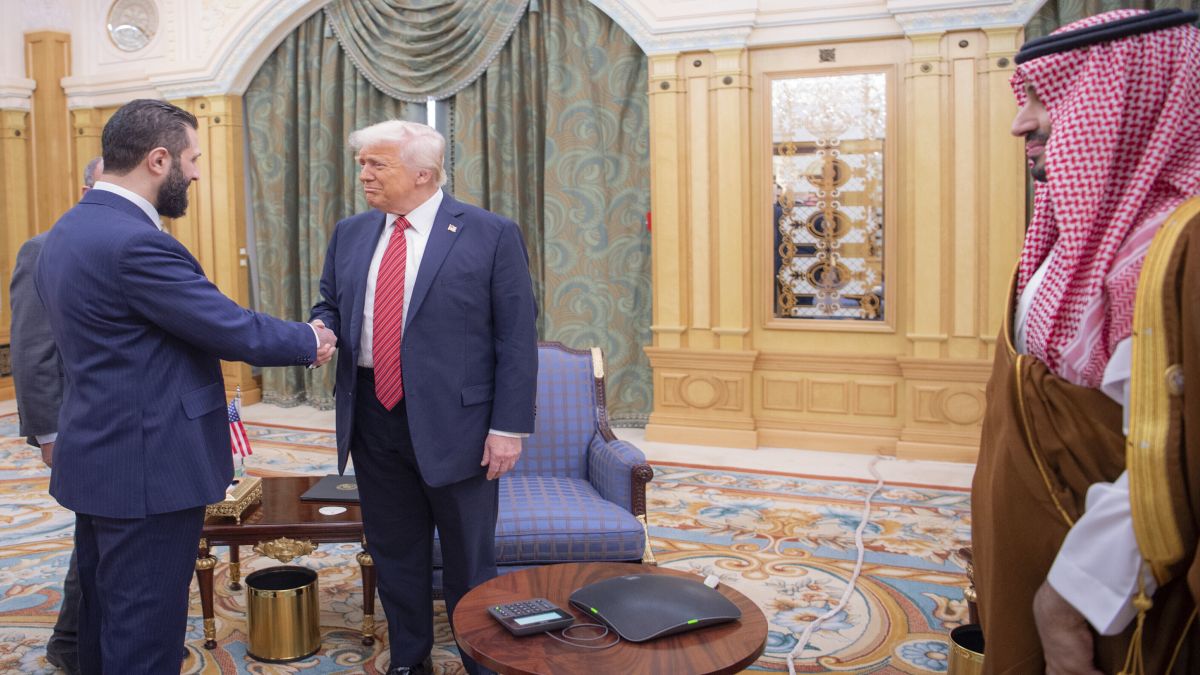A US senator on Thursday said that Jordan’s King Abdullah II had warned the US against assassinating Syrian President Ahmed al-Sharaa, prior to his meeting with President Donald Trump.
According to a Middle East Eye report, the striking admission by a US senator highlights the strong opposition to Sharaa within parts of the Trump administration. It also reinforces Trump’s own claims that foreign leaders have personally urged him to give Sharaa a chance, even as many of his advisors remain wary, added the report.
“I have been concerned by some rumours that I have heard in…some foreign policy circles of the administration that one option that’s been suggested is assassinating the new leader of the Syrian government, Ahmed al-Sharaa,” Middle East Eye quoted Democratic Senator Jeanne Shaheen as saying in a Senate hearing on Thursday.
Senator Shaheen said Jordan’s King Abdullah II became aware of alleged discussions about assassinating Sharaa and issued a warning against it.
“One of the things that was pointed out to us by King Abdullah was that a change in leadership of that kind would create an all-out civil war in Syria. That would not be good to take advantage of the opportunity we have to move that country forward,” Shaheen was quoted as saying.
Shaheen met with King Abdullah in Washington, DC, in May, indicating that the warnings may have come just before Trump unexpectedly lifted sanctions on Syria and met with Sharaa.
Impact Shorts
More ShortsShe made the revelation while questioning Joel Rayburn, Trump’s nominee for undersecretary of state for Near East — the top Middle East position in the State Department.
Shaheen’s comments are especially striking in light of this week’s developments.
Trump stunned his own senior officials and Israeli allies by announcing the complete removal of sanctions on Syria, followed by a meeting with Sharaa in Riyadh on Wednesday.
Speaking to reporters on Air Force One after the meeting, Trump showered praise on Sharaa, saying he was a “young, attractive guy. Tough guy. Strong past. Very strong past. Fighter”.
Asked to comment on the assassination “option”, Rayburn replied, “I’m not familiar with efforts like that, but that’s clearly not in line with the president’s intention…or his description of Sharaa in the past couple of days.”
According to the report, Trump’s surprise decision to lift all US sanctions on Syria, some in place since 1979, drew loud praise in Riyadh but stirred frustration within the US government. Even officials in the State Department who supported easing sanctions said they were blindsided.
Just days earlier, US diplomats had assured foreign counterparts that sanctions on Syria’s new leadership would remain, Middle East Eye quoted a regional official as saying.
Meanwhile, hardliners on Trump’s National Security Council privately vowed to slow-roll the relief process to extract concessions from President Ahmed al-Sharaa, Middle East Eye quoted one current and one former US official as saying.
Democratic Senator Chris Murphy accused Trump’s own team of working to “undermine” the move. The tension was evident during a Senate confirmation hearing for Joel Rayburn, Trump’s pick for top Middle East envoy.
Once known for a tough stance on Syria, Rayburn now backs Trump’s shift, calling it “a golden opportunity to turn the page.”
The White House said Trump wants Sharaa to expel foreign fighters, push out Palestinian militants, and take on Islamic State remnants. Trump also claimed Sharaa expressed willingness to normalise ties with Israel.
“I told him, ‘I hope you’re going to join when it’s straightened out.’ He said, ‘Yes.’ But they have a lot of work to do,” Trump said, according to a White House pool report.
Sharaa, the former commander of Islamist group Hayat Tahrir al-Sham (HTS), helped overthrow the Assad regime in late 2024. A veteran of the Iraq insurgency and a former US prisoner, he once pledged allegiance to al-Qaeda.
Though the Biden administration removed a $10 million bounty on his head earlier this year, he remains designated a global terrorist — a label likely to be dropped following Trump’s order.
Sharaa’s closest ally is Turkey, but he has also grown closer to Gulf states. Trump credited Turkey’s President Recep Tayyip Erdogan and Saudi Crown Prince Mohammed bin Salman for urging the sanctions rollback.
Meanwhile, the UAE is brokering indirect talks between Syria and Israel to reduce tensions. Israel, which continues to strike Syrian targets and occupies parts of the country’s southwest, has been asked to engage in deconfliction talks alongside Turkey.
Asked by Israeli broadcaster Kan News whether Syria might join the Abraham Accords, Syrian information ministry spokesperson Ali al-Rifai responded simply, “Peace with everyone, without exception.”
With inputs from agencies
)